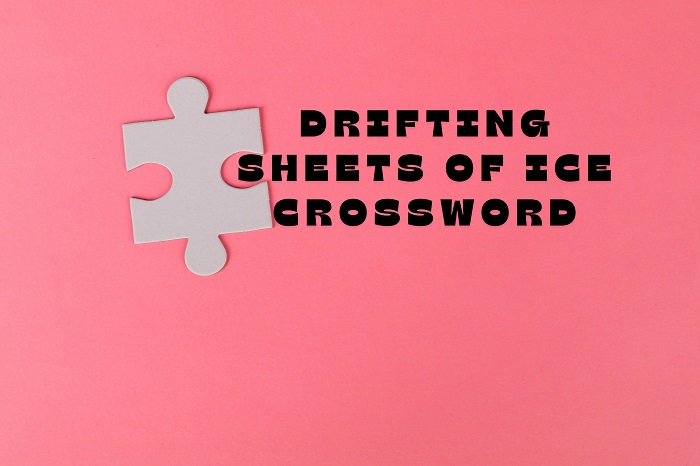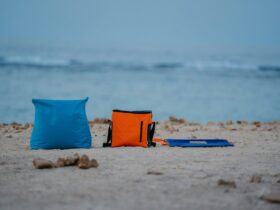Crossword puzzles come as a delightful blend of vocabulary, logic, and creativity, offering solvers the opportunity to stretch their minds while engaging in a bit of playful thinking. Among the many intriguing clues that appear in crossword puzzles, those related to natural phenomena often stand out for their vivid imagery and challenge. One such clue that has puzzled many is drifting sheets of ice. Depending on the crossword’s difficulty and the puzzle constructor’s intent, this clue can evoke various associations and lead to multiple possible answers.
In this article, we’ll explore the drifting sheets of ice crossword clues in detail, offering hints, potential answers, and a deeper understanding of the terms involved. Whether you’re a seasoned crossword solver or new to the game, these insights should help you tackle this clue with confidence.
Drifting Sheets of Ice: The Nature of the Clue
The clue is a vivid and descriptive one. It’s often essence is in crossword puzzles to evoke images of cold, remote environments like the Arctic or Antarctic. The term refers to large, flat masses of ice that float on the surface of the ocean. These sheets of ice can vary in size, from small fragments to massive expanses that cover vast areas of water.
The beauty of this clue lies in its simplicity and the range of possible answers it can inspire. As solvers, we must consider both the literal meaning of the clue and the wordplay or synonyms. Understanding the nature of drifting ice sheets can guide us toward the correct answer.
Drifting Sheets of Ice Hints & Meanings
Let’s delve into some potential answers and the meanings behind them. The drifting sheets of ice clue typically leads to answers that describe these natural formations in one way or another. Here are some of the most common possibilities:
1. FLOES
This term refers specifically to large, flat pieces of ice, which again, flat in the ocean after breaking off from larger ice packs. FLOES is a succinct and accurate description of the phenomenon the clue is pointing to.
- Meaning: FLOES are large sheets of floating ice, often found in polar regions. They can range in size from a few meters to several kilometers and are a common sight in areas where sea ice forms and breaks apart.
2. BERGS
Another potential answer is BERGS, which is short for icebergs. While not exactly the same as floes, icebergs are large pieces of floating ice that come from either ice shelves or glaciers and move in the sea. They are typically much larger than floes and have a distinct appearance, with most of their mass submerged underwater.
- Meaning: BERGS are large masses of ice, typically found floating in the ocean after calving from glaciers. Unlike floes, which are flat, icebergs can be towering structures with a significant portion hidden below the water’s surface.
3. PACK ICE
PACK ICE is another term that might be used as an answer to the clue. Pack ice refers to a substantial area of sea ice floating on the ocean’s surface, often covering an expansive region. This ice can drift with ocean currents and winds, forming dense, interconnected sheets.
- Meaning: PACK ICE is a large area of sea ice that floats together on the surface of the ocean, often forming a continuous cover over large areas of water. It is commonly found in polar regions and can vary in thickness and density.
4. GLACIER
Although less common, GLACIER might also be considered as an answer, especially in puzzles where the clue is meant to be more abstract or figurative. A glacier is a massive, slow-moving river of ice that forms from compacted snow. While glaciers themselves don’t drift, ice that calves off from them can form drifting sheets.
- Meaning: GLACIER refers to a large mass of ice that moves slowly, formed from compacted snow, typically found in polar regions and mountainous areas. When pieces break off from glaciers, they can drift as icebergs or floes in the ocean.
5. RAFTS
In some cases, the term RAFTS might come in handy as a more creative answer to the clue. While not a technical term for ice, rafts can refer to any floating structure or mass, including ice sheets. This answer might be more common in crossword puzzles that favor wordplay and metaphorical thinking.
- Meaning: RAFTS generally refers to floating platforms or masses that drift on water. In the context of this clue, it can come into play metaphorically to describe sheets of ice that drift like rafts on the ocean’s surface.
Understanding the Crossword Puzzle Context
The correct answer to the drifting sheets of ice clue often depends on the specific crossword puzzle in which it appears. Different puzzles have varying levels of difficulty, and the constructor’s style can influence the nature of the clue. In more straightforward puzzles, FLOES is likely to be the correct answer due to its direct relevance to the clue. However, in more challenging puzzles, answers like BERGS or PACK ICE might be used to add a layer of complexity.
When encountering this clue, solvers should also consider the length of the answer. They must also check for any intersecting clues that might provide additional hints. For instance, if the crossword grid requires a five-letter word, FLOES is a strong candidate. If more letters are needed, PACK ICE might be the answer. Paying attention to these details can help solvers narrow down their options and arrive at the correct solution.
The Significance of Drifting Sheets of Ice in Crossword Puzzles
Crossword puzzles often draw from a wide range of topics, including natural phenomena like drifting sheets of ice. These clues not only test solvers’ knowledge of specific terms but also encourage them to think about the broader context in which these terms are used. For example, understanding the behavior of ice in polar regions or the process by which glaciers calve can provide valuable insights when solving these types of clues.
Moreover, clues like drifting sheets of ice highlight the educational aspect of crossword puzzles. By solving these clues, solvers can learn new terms and concepts, expanding their vocabulary and general knowledge. This educational value is one of the reasons why crossword puzzles remain a popular and enduring form of entertainment.
End Note
The drifting sheets of ice crossword clue is a fascinating example of how natural phenomena are represented in puzzles. Whether the answer is FLOES, BERGS, PACK ICE, or another related term, solving this clue requires both knowledge and a bit of creative thinking. As with many crossword clues, the key is to consider the different possibilities and use the context of the puzzle to guide your answer.
Crossword puzzles offer a unique opportunity to engage with language and knowledge in a fun and challenging way. The next time you encounter a clue, you’ll be well-equipped to find the right answer. Plus, you’ll enjoy the satisfaction of solving another piece of the puzzle.
FAQs
Q: What does the clue drifting sheets of ice typically refer to in a crossword?
A: The clue usually refers to terms like FLOES, BERGS, or PACK ICE. All of these describe large masses of ice that float on the surface of the ocean.
Q: Why is FLOES a common answer for the drifting sheets of ice clue?
A: FLOES is a direct and accurate term for drifting sheets of ice, making it a common answer in crossword puzzles.
Q: Can BERGS be an answer to the drifting sheets of ice clue?
A: Yes, BERGS can be an answer, especially if the crossword is referring to larger chunks of ice that drift in the ocean.
Q: How does crossword puzzle context influence the answer to the drifting sheets of ice clue?
A: The puzzle’s difficulty level, the length of the answer required, and intersecting clues all influence which term (e.g., FLOES, PACK ICE) is correct.
Q: Are there other similar crossword clues related to ice and natural phenomena?
A: Yes, clues like iceberg fragment, floating ice, and polar ice mass are similar and may require answers like FLOES or BERGS.
Q: What’s the importance of understanding natural phenomena in crossword puzzles?
A: Understanding these phenomena helps solvers deduce the correct answers and enhances their knowledge of terms used in various contexts.










Got a Questions?
Find us on Socials or Contact us and we’ll get back to you as soon as possible.